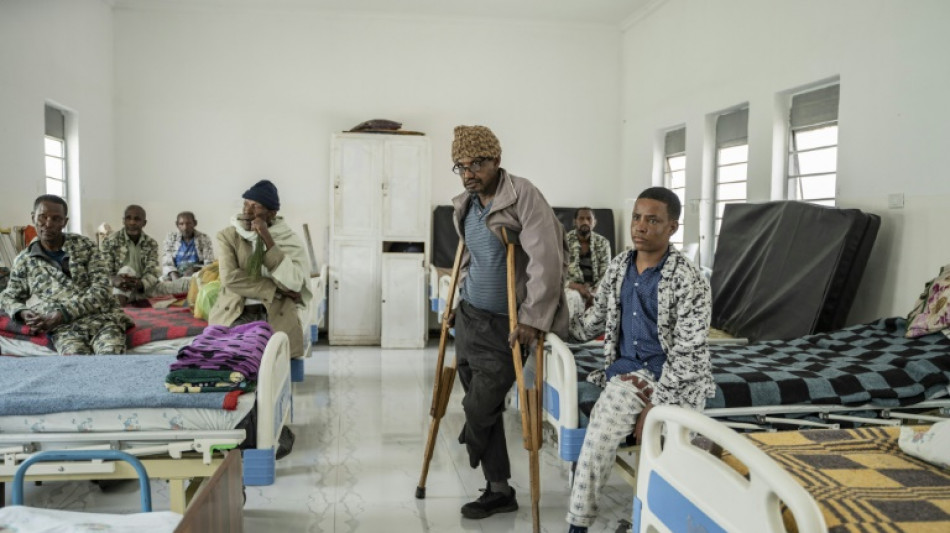
-
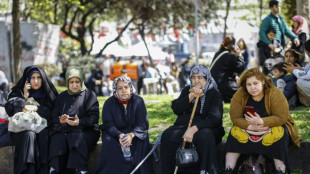 Powerful 6.2-magnitude quake hits off Istanbul coast
Powerful 6.2-magnitude quake hits off Istanbul coast
-
East Timor faithful, ex-rebels see hope after Pope Francis
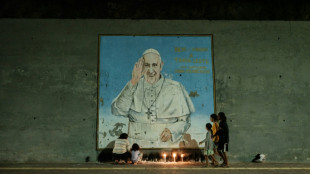
-
 I.Coast's barred opposition leader says is party's only presidential candidate
I.Coast's barred opposition leader says is party's only presidential candidate
-
India vows 'loud and clear' response to Kashmir attack
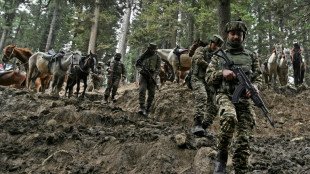
-
 Champions League spot would be 'Premier League trophy' for Man City: Nunes
Champions League spot would be 'Premier League trophy' for Man City: Nunes
-
Abbas urges Hamas to free Gaza hostages as Israeli strikes kill 18
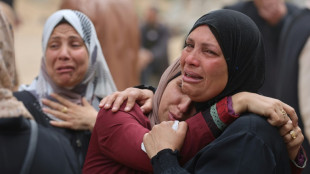
-
 Stocks rally as Trump soothes fears over China trade, Fed
Stocks rally as Trump soothes fears over China trade, Fed
-
French PM's daughter says priest beat her as a teenager

-
 Tens of thousands say goodbye to Pope Francis lying in state
Tens of thousands say goodbye to Pope Francis lying in state
-
EU slaps fines on Apple and Meta, risking Trump fury

-
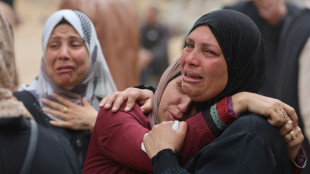 Gaza rescuers recover charred bodies as Israeli strikes kill 17
Gaza rescuers recover charred bodies as Israeli strikes kill 17
-
Tourists flee India-administered Kashmir after deadly attack
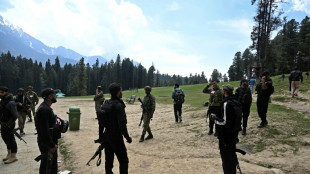
-
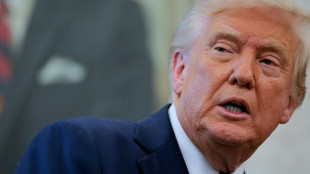 China says 'door open' to trade talks after Trump signals tariffs will fall
China says 'door open' to trade talks after Trump signals tariffs will fall
-
WEF confirms investigation into claims against founder Schwab
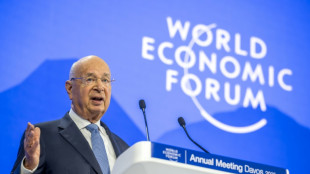
-
 Pilgrims flock to pay tribute to pope lying in state
Pilgrims flock to pay tribute to pope lying in state
-
Stocks rally as Trump comments ease Fed, China trade fears

-
 Muzarabani takes six as Bangladesh set Zimbabwe 174 to win
Muzarabani takes six as Bangladesh set Zimbabwe 174 to win
-
PM faces first test as Singapore election campaign kicks off

-
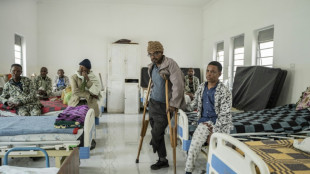 Patients with leprosy face lasting stigma in Ethiopia
Patients with leprosy face lasting stigma in Ethiopia
-
Still reeling a year on, Brazil's Porto Alegre fears next flood
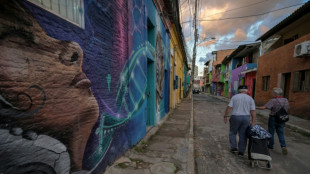
-
 Lakers level NBA playoff series, Pacers and Thunder win again
Lakers level NBA playoff series, Pacers and Thunder win again
-
At night, crime and fear stalk DR Congo's M23-run areas
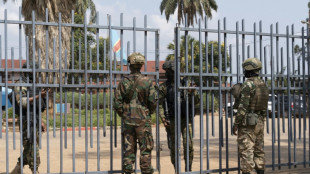
-
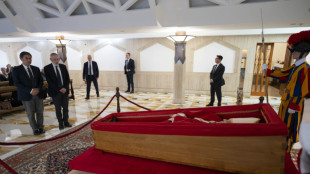 Embalming and make-up: Pope's body prepared for lying-in-state
Embalming and make-up: Pope's body prepared for lying-in-state
-
Prosecutors to make case against Harvey Weinstein at retrial

-
 Coral reefs pushed to brink as bleaching crisis worsens
Coral reefs pushed to brink as bleaching crisis worsens
-
Vietnam village starts over with climate defences after landslide
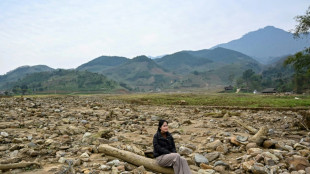
-
 'Happiness, love' at Moonie mass wedding after Japanese court blow
'Happiness, love' at Moonie mass wedding after Japanese court blow
-
Veteran Chinese astronaut to lead fresh crew to space station

-
 Pilgrims gather as Pope Francis begins lying in state
Pilgrims gather as Pope Francis begins lying in state
-
Asian markets rally as Trump comments ease Fed, China trade fears
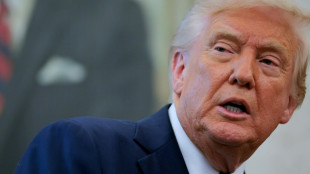
-
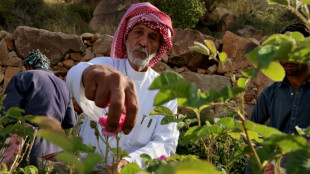 Saudi 'city of roses' offers fragrant reminder of desert's beauty
Saudi 'city of roses' offers fragrant reminder of desert's beauty
-
Trump says won't fire Fed chief, signals China tariffs will come down
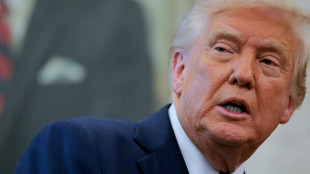
-
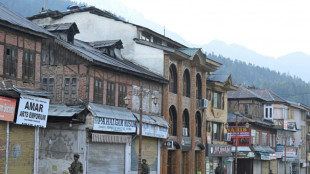 India hunts gunmen who massacred 26 in Kashmir tourist hotspot
India hunts gunmen who massacred 26 in Kashmir tourist hotspot
-
'No one else will': Sudan's journalists risk all to report the war
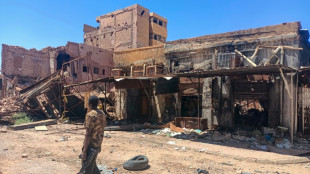
-
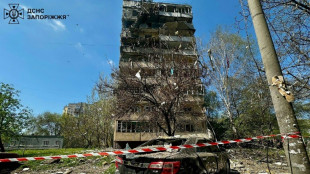 UK hosts new round of Ukraine talks
UK hosts new round of Ukraine talks
-
Trial testimony reveals OpenAI interest in Chrome: reports

-
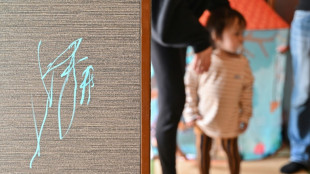 Tokyo's newest art star: one-year-old Thumbelina
Tokyo's newest art star: one-year-old Thumbelina
-
Ronaldo hunts Asian Champions League glory in Saudi-hosted finals

-
 Scientists sound alarm as Trump reshapes US research landscape
Scientists sound alarm as Trump reshapes US research landscape
-
Trump's return boosts Israel's pro-settlement right: experts
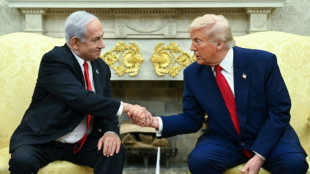
-
 Trump solo: first lady, children out of frame in new term
Trump solo: first lady, children out of frame in new term
-
Climate watchers fret over Trump's cut to sciences
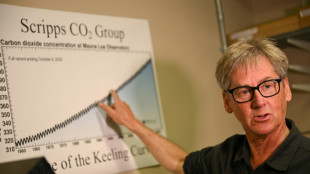
-
 Moving fast and breaking everything: Musk's rampage through US govt
Moving fast and breaking everything: Musk's rampage through US govt
-
'Everyday attack' - Trans youth coming of age in Trump's America

-
 A stadium and a jersey for Argentina's 'Captain' Francis
A stadium and a jersey for Argentina's 'Captain' Francis
-
New Trump task force vows to root out 'anti-Christian bias'

-
 96.com Congratulates Burnley FC on Premier League Promotion
96.com Congratulates Burnley FC on Premier League Promotion
-
Auto Shanghai showcases new EV era despite tariff speedbumps

-
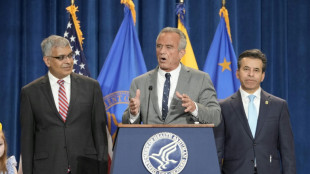 Trump's administration moves to scrap artificial food dyes
Trump's administration moves to scrap artificial food dyes
-
Musk to reduce White House role as Tesla profits plunge


Patients with leprosy face lasting stigma in Ethiopia
Tilahun Wale not only lost his right foot to leprosy -- a disease that still affects thousands in Ethiopia -- he also lost his family.
"My family abandoned me. They blocked my number and refused to speak to me," said Tilahun, 46, a farmer in Ethiopia's populous Oromia region, who contracted leprosy around 10 years ago.
Ethiopia, a country of some 130 million people in northeastern Africa, officially eliminated leprosy as a public health problem in 1999, after case numbers dropped below one in 10,000.
But some 2,500 infections are still recorded there each year, according to the United Nations World Health Organization (WHO), which lists leprosy as one of the 20 "neglected" tropical diseases.
In Ethiopia, a highly religious country, leprosy is often perceived as a divine punishment.
Caused by the bacteria Mycobacterium leprae, the contagious infection attacks the skin and peripheral nerves, with potentially serious after-effects, including physical deformities.
The disease was declared eliminated as a health problem globally in 2000, according to the WHO.
But leprosy is still present in more than 120 countries worldwide, with nearly 200,000 cases reported each year, despite being curable and with treatments that can prevent disability if applied early.
Haile Kairos developed the disease as a child.
"I noticed the appearance of lumps on certain parts of my body," said the 35-year-old, hiding the effects of leprosy on his legs with a blanket.
There is still a stigma, he said, recalling the disgust and avoidance he has faced.
Ethiopian society "doesn't have enough information about the disease", he said.
The Alert Hospital in the capital Addis Ababa specialises in leprosy and treats dozens of patients at a time.
It was originally founded as a leper colony in 1934 away from residential areas, but the city has expanded to surround it.
- 'Stigma has diminished' -
Perceptions of the disease are only slowly evolving, said Solomon Getahun, project manager at International Leprosy Mission, an NGO that provides medical assistance to patients and raises awareness.
It organises discussions in communities across Ethiopia, bringing together people with the disease to explain the challenges they face.
The NGO also offers microcredit to patients, most of whom struggle to find employment.
Atale Mekuriyaw, 70, works at a centre where a dozen people with the disease, mostly women, make rugs, traditional clothing and jewellery.
The modest salary "helps us provide for our families", she said.
For every kilo of raw cotton she weaves, she earns between 100 and 150 birr (around 75 cents to $1.15).
"Coming here and spending time like this is important to us. It's better than staying at home," added Atale, who has suffered from leprosy since childhood and says she feels less discriminated against today.
"In the past, people used to say: 'Don't go near her!' But today, thanks to access to medication, the stigma has diminished," she said.
The WHO has praised Ethiopia's progress in treatment and care.
But the recent drastic cuts in aid announced by the United States and other Western countries could undermine the efforts.
The WHO said last month it was cutting its budget by a fifth after the United States -- previously its biggest source of funds -- said it would no longer contribute.
That is a potential problem for Alert Hospital, where preventative medicines have been supplied by the WHO.
Shimelis Gezahegn, the hospital's director, said the Ethiopian authorities had promised "a backup plan".
He added that it was vital they step in to continue work on treatment and eventual eradication of the disease.
But "there could be some problems," he said.
H.Kuenzler--VB
